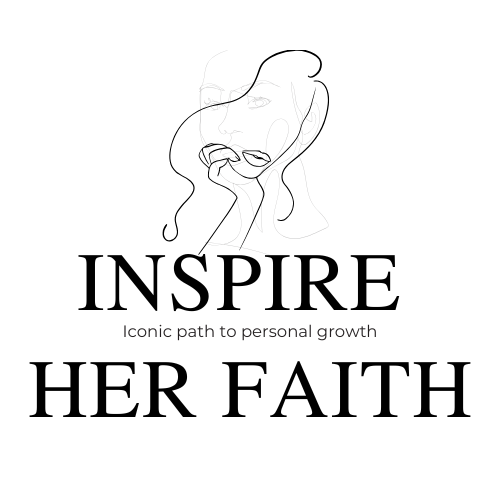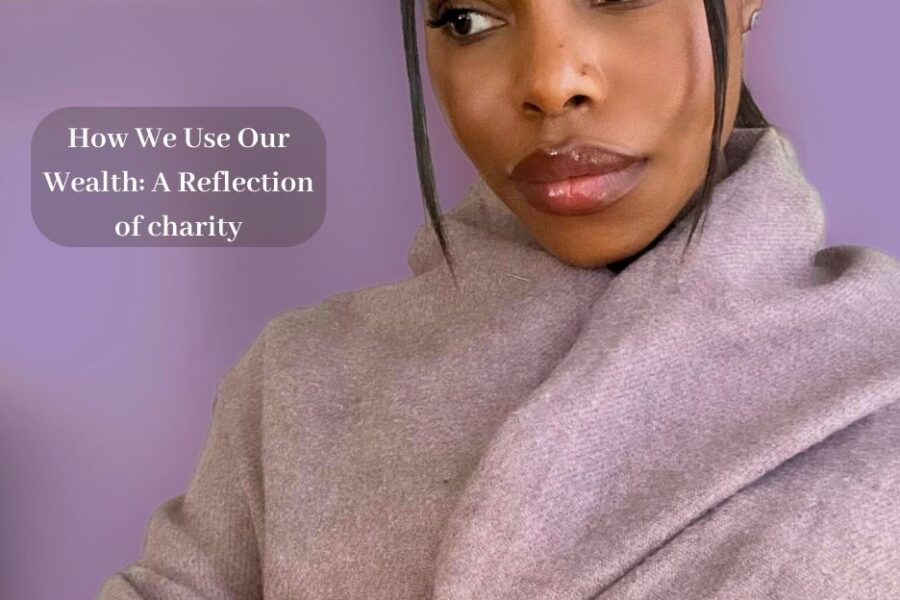“Read! In the Name of your Lord, Who has created (all that exists).” (Quran 96:1)
I love to read; I devoured books even as a little kid. It was my form of escapism. Not being able to read or understand Arabic, the verse above puzzled little Eliana greatly but she didn’t question it because she was made to understand that Allah (swt) is The Omnipotent and that He creates and owns everything in the universe.
Always curious and hungry for more knowledge, I have since learned more about the story of when the Prophet Muhammad (saw) received the first revelation. He was a 40-year-old man and illiterate when he was demanded by the Angel Jibreel to read. A former acquaintance said that “a person can’t change once they’ve reached the age of 40” which annoyed me when The Messenger of Allah has disproven that.
Living in the age of technology where everything is accessible with the touch of a button, the world has grown noisier with the constant notifications, news, and updates as we are busy running our daily lives at home, school, and work. It’s no wonder anxiety is a growing pandemic.
But what exactly is occupying our thoughts and time, though? During the heat of Blockout 2024 trend or the digitine, I fully realized how peaceful it is to not be constantly bombarded with celebrity gossip when scrolling through social media.
She has so far deviated from Allah and the deen that she has succumbed to practising witchcraft which is also against Islam. Her vice has not only affected the people who were in her life but also herself.
Islam as a way of life is so holistic that we believe that whatever you visually digest enters your heart, and the heart in our religion is such a precious entity. In fact, it is always the qalb (heart) that is emphasized in the Quran and not the mind, because it is the heart that controls the mind, and the mind controls your limbs.
“There is a piece of flesh in the body if it becomes good (reformed) the whole body becomes good but if it gets spoilt the whole body gets spoilt and that is the heart.” – Prophet Muhammad (pbuh) [Sahih al-Bukhari]
People in my culture often use gossip as a way to connect which aside from it being toxic is also against the teachings of Islam. Have we ever stopped to think, how does this benefit my akhirah? I know for certain that we won’t be quizzed about others’ lives by Munkar and Nakir. The Prophet (saw) said, “Verily, among excellence in Islam is for a man to leave what does not concern him.”
The verse from Surah Al-Alaq points out that knowledge is something we should pursue, and that reading is the key to knowledge because it is with knowledge that we can differentiate between right and wrong and take action accordingly, not just in matters concerning the deen (religion), but also regarding worldly affairs.
Any goal without Allah (swt) in the equation is incomplete; it is a compass for Muslims to seek the pleasure of Allah (swt) in all that we do instead of chasing the approval of His creations, which feels freeing in this increasingly self-serving world.
I am no longer associated with the former acquaintance since I have learned to listen to my body recognizing discomfort and unease around toxic people. All our mutual friends have cut her out of their lives due to her excessive gossip-mongering, and the result of her filling up her mind and free time with things not concerning herself and personal growth is scary.
She has so far deviated from Allah and the deen that she has succumbed to practising witchcraft which is also against Islam. Her vice has not only affected the people who were in her life but also herself. Although this scenario does not apply to everyone, it is hopefully a reminder to our dear readers and fellow Muslims of the kind of damage idle minds create.
“And do not be like those who forgot Allah, so He made them forget about themselves. It is they who are truly rebellious.” (Quran 59:19)
Definition of personal development according to secular psychology
We often hear others talking about hitting the gym to work on their ideal weight and body, but rarely about personal development. But what exactly is personal development? Personal development comprises mental, social, spiritual, emotional, and physical aspects.
Pursuing personal development can propel one’s talents and skills to reach their full potential in their personal and professional life, provided they have access to develop their inclinations and abilities. This theory is compatible with Islam and the teachings of Prophet Muhammad (saw) as balance in everything we do is a key to living a fulfilling and healthy life. It is a lifelong journey, and with due diligence, one will keep improving oneself as one evolves.
Mental
Mental growth can help us not only at school but also at work. What subject or hobbies were you into while you were growing up? What topic or interest do you find mentally stimulating? What topics do you find most interesting and can talk about without much difficulty or hesitation?
Read up and stay abreast on those topics, and enrol in courses in your niche to expand your knowledge about it which will open doors for you. This skill can also be useful at social gatherings. Who doesn’t find anyone with a strong passion for a cause appealing?
His emotional intelligence (EI or EQ, emotional quotient) and empathy were key towards change, and are important for building and maintaining relationships. This skill begins by having a relationship with yourself
Spiritual
How is your connection to Allah lately? Spiritual growth in Islam requires taqwa (awareness of God). We come to love someone as we get to know them, and how they describe themselves. We do everything in our power and might to please our beloved and be in their good graces.
Shouldn’t the same be applied to our Creator? Get to know Allah (swt) by how He describes Himself, and align our actions and intentions to the teachings of the Quran and Sunnah. One of my favourite stories in the Quran is how Maryam (as) was so dependent on Allah that she even asked for fruits out of season from Allah.
It absolutely melts my heart how close she felt towards God the way a child is affectionate and dependent towards their parent.
Emotional
Emotional intelligence is often overlooked within the Muslim community as we are more focused on physical acts of ibadah, but we can find authentic hadiths about how the Prophet (pbuh) was able to connect with people from all walks of life from children, the elderly and the mentally ill which shows high emotional intelligence.
His emotional intelligence (EI or EQ, emotional quotient) and empathy were key towards change, and are important for building and maintaining relationships. This skill begins by having a relationship with yourself, understanding yourself better through self-awareness and learning how to regulate your own emotions. When we understand ourselves better, we can have a better relationship with and tolerance for others.
Social
Social intelligence goes hand in hand with emotional intelligence. It involves communication skills, which is something we do every day whether professionally or within our social circles. What most of us aren’t aware of is that listening is a part of communication skills.
Listening plays a huge role in creating a connection; we often communicate in hopes of convincing the other party to understand our point of view, but we rarely think of doing the same for them. We’re too busy defending ourselves that we miss out on creating a connection and understanding others, too, just as they wish to be seen and understood. The fight for equality is incomplete if we do not also want what’s best for others.
“None of you truly believes in Allah and His religion until he loves for his brother what he loves for himself.” – Prophet Muhammad (pbuh) [Bukhari & Muslim].
Physical
Taking care of your body can sometimes be seen as vanity, which is a shame because we have a responsibility to care for our physical health just as much as seeking knowledge is an obligation on Muslims. A person’s quest to seek knowledge, provide for themselves and their family and performing ibadah (acts of worship) is dependent on our physical health, is it not?
Physical health is not just exercise, but also what we consume; in Islam, we are taught by Prophet Muhammad (pbuh) that moderation in food and drink is also vital for our health. It is excessive eating and lack of physical movements that are among the causes of illness.
“The son of Adam cannot fill a vessel worse than his stomach, as it is enough for him to take a few bites to straighten his back. If he cannot do it, then he may fill it with a third of his food, a third of his drink, and a third of his breath.” – Prophet Muhammad (pbuh), [Sahih Muslim]
Freud’s personality theory vs. the Islamic model of the soul
When studying the origin of the word psychology, Islamic psychology has a much closer definition of it when compared to contemporary psychology, as psyche in Latin means ‘soul’ and logia means ‘the study of’. The word psychology itself didn’t appear until the late 1800s.
However, the Muslim scholars in the Islamic Golden Era have been studying human behaviour and treating mental illness for a thousand years prior and was then known as ilm an-nafs (knowledge of the self/ soul).
The difference is that in Islamic psychology there are four terms to describe the concept of self. There are the nafs (self or soul, depending on the context), ruh (soul), qalb (heart) and aql (mind). In contrast, there is only a study of the mind and body in contemporary psychology.
Also contrary to Western media propaganda and literature, jihad in Islam means the struggle against the nafs (soul) which if not reigned will wreak havoc and is certainly not a war cry. In the Quran, there are three stages of the nafs which are:
Nafs al-Ammara
The lower self (Quran 12:53), the lowest in the 3-tier pyramid of the psycho-spiritual state that is driven by selfish ego and lust, and can be inclined towards harm and the immoral.
Nafs al-Lawwamah
The reproachful self (Quran 75:2), the middle ground between impulsive tendencies and a sense of righteousness, and more aware of its conscience with the ability to feel remorseful.
Nafs al-Mutma’innah
The contented self (Quran 89:27), the highest level of psycho-spiritual health as ordained by Divine law, always seeking spiritual contentment and attaining peace.
I was surprised to find some similarities between Freud’s personality theory and the Islamic model of the soul. Although differently named, his personality theory explains that the human psyche comprises 3 parts:
The Id
Operates on autopilot from subconscious memories and sudden whims.
The Ego
A balancing act between the hedonistic Id and the moral Superego; seeks to satisfy the Id’s demands through acceptable etiquette.
The Superego
The opposite of the Id that operates from moral values and principles.
Just like that beautiful melancholic song by Billie Eilish, human beings naturally question, “What was I made for?” But in Islam, we take it a step further, “What is my legacy?”
As Muslims, the way to reach the higher levels of nafs is to be in the constant state of taqwa and to live according to the Sunnah of The Messenger of Allah, Prophet Muhammad (pbuh).
Islam understands and acknowledges that the human heart is in a constant state of flux, which is why the five daily prayers and other forms of ibadah can help us in maintaining taqwa. It’s like going to the gym regularly to build stamina and muscles; you can’t flex what you don’t have.
Besides, who else has the time to lovingly listen to our problems and struggles five times a day except for your Creator?
The strive or jihad for personal development has to be a long-term goal for Muslims, because our common end goal, Jannah, isn’t cheap.
Just like that beautiful melancholic song by Billie Eilish, human beings naturally question, “What was I made for?” But in Islam, we take it a step further, “What is my legacy?”. As human beings are the favoured creations of Allah because of our intellect, how have we been beneficial towards humanity? Our time in this dunya is short, and none of us know when Allah will call us Home.
“A wise man is the one who calls himself to account (and refrains from doing evil deeds) and does noble deeds to benefit him after death, and the foolish person is the one who subdues himself to his temptations and desires and seeks from Allah the fulfilment of his vain desires.” – Prophet Muhammad, (At-Tirmidhi).
References
Sunnah.com – Sayings and Teachings of Prophet Muhammad (صلى الله عليه و سلم)
Nafs (Soul or Self) In Islamic Psychology ► ISIP
5 Areas of Personal Growth (Plus Tips for Development) | Indeed.com



